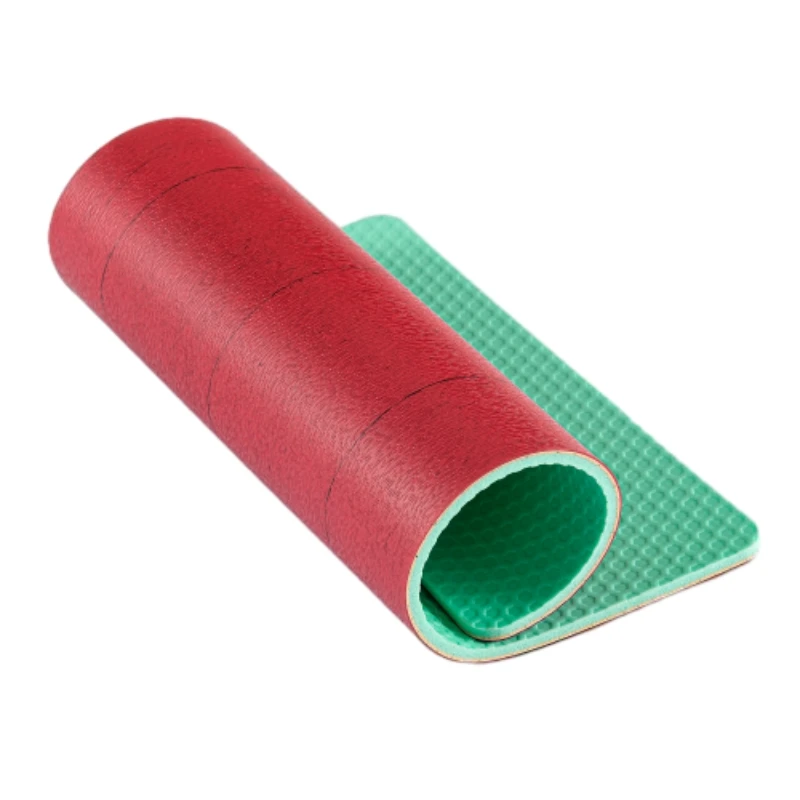types of interlock tiles
Understanding the Various Types of Interlock Tiles
Interlock tiles have gained immense popularity in both residential and commercial settings due to their versatility, ease of installation, and aesthetic appeal. These tiles are designed to securely fit together, creating a seamless surface while allowing for rapid installation and easy removal. This article will delve into the different types of interlock tiles, their features, applications, and the benefits they offer.
1. Rubber Interlock Tiles
Rubber interlock tiles are among the most common types used in gyms, playgrounds, and sports facilities because of their shock-absorbing properties. Made from recycled rubber, these tiles provide excellent durability and a non-slip surface, making them ideal for high-traffic areas. They come in various thicknesses, providing options for different levels of cushioning. Additionally, they are resistant to weather elements, which makes them suitable for outdoor use as well.
2. Vinyl Interlock Tiles
Vinyl interlock tiles are designed for both residential and commercial applications. They offer a wide range of designs and colors, mimicking natural materials like wood and stone while being more cost-effective. The ease of cleaning and maintenance makes them a popular choice for kitchens, bathrooms, and entryways. These tiles also provide a degree of water resistance, adding to their appeal in moisture-prone areas.
3. Ceramic and Porcelain Interlock Tiles
Ceramic and porcelain interlock tiles offer a more sophisticated appearance and are commonly used in residential bathrooms, kitchens, and living areas. Although slightly heavier and more challenging to install than rubber or vinyl options, they provide a luxurious look and feel. Porcelain tiles, in particular, are known for their durability and resistance to scratches and stains, making them suitable for both indoor and outdoor applications.
4. Carpet Interlock Tiles
Carpet interlock tiles combine the comfort of carpet with the practicality of interlocking flooring. Ideal for home offices, playrooms, and even commercial spaces, these tiles come in various pile heights and textures. They provide excellent insulation and are soft underfoot, making them a cozy option for areas where people frequently sit or walk barefoot. Additionally, they can be easily replaced if damaged, providing a cost-effective flooring solution.
types of interlock tiles

For those seeking a natural aesthetic, stone interlock tiles, such as slate or travertine, offer an elegant and timeless look. These tiles are typically used in patios, entryways, and gardens, providing excellent resistance to weather conditions. The natural variation in colors and textures ensures that each installation is unique. However, some stone tiles may require sealing to enhance their longevity and protect against stains.
Benefits of Interlock Tiles
Interlock tiles come with several advantages, making them a popular choice for many applications
- Ease of Installation Interlock tiles are designed for DIY installation, requiring minimal tools and expertise. This saves on labor costs and allows for quick changes to flooring layouts.
- Versatility They are suitable for various environments, be it residential or commercial, indoor or outdoor.
- Easy Maintenance Most interlock tiles are easy to clean and maintain. Many materials are stain-resistant and simply require regular sweeping and occasional damp mopping.
- Cost-Effective Interlock tiles can often be more affordable than traditional flooring options, especially considering the savings on installation fees.
In conclusion, interlock tiles offer a practical and aesthetically pleasing flooring solution with various types to suit different needs. Whether it’s rubber for safety, vinyl for versatility, or stone for elegance, there’s an interlock tile to match every space. Their advantages in ease of installation, maintenance, and cost-efficiency make them a compelling option for homeowners and businesses alike.
-
Commercial Parquet Flooring: Considerations of Aesthetics, Practicality, And SustainabilityNewsApr.15,2025
-
PVC Sports Flooring: Performance, Applications, And Development TrendsNewsApr.15,2025
-
PP Interlocking Floor: a Paving Solution That Combines Functionality and SustainabilityNewsApr.15,2025
-
Plastic Flooring Tiles Outdoor: Practicality, Sustainability, And Development ProspectsNewsApr.15,2025
-
On the Application of PVC Flooring for Badminton Court in Badminton VenuesNewsApr.15,2025
-
Commercial Wood Flooring: the Balance Between Aesthetics, Functionality, And SustainabilityNewsApr.15,2025
-
The Ultimate Guide to Futsal FlooringNewsMar.27,2025

